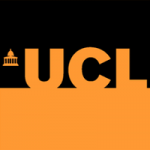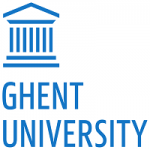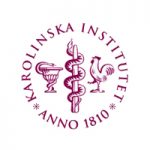项目介绍
Overview
The extensive specialities of the research investigators at the Ear Institute provide an opportunity to study just about every aspect of hearing from cell and molecular biology to clinical research and cognitive neuroscience. Collaborations between these areas also allow novel experimental approaches that cross traditional scientific boundaries.
Research areas
- Molecular genetics of hearing and deafness: discovering the genetic causes of deafness and hearing loss, molecular mechanisms of hair cell loss, whole transcriptome and whole exome approaches
- Cell biology of hearing and balance loss: understanding the mechanism of sensory hair cell death, repair of the sensory epithelia, hair cell regeneration, stem cell-based approaches for screening and therapy
- Cellular physiology of hair cells: mechanisms of transduction, biophysics of afferent synapses, physiological characterisation of auditory neurons, electrophysiology
- Clinical audiology: evaluating current approaches for hearing impairment, tinnitus, cochlear implants, balance disorders and new diagnostic tools
- Cochlear homeostasis: epithelial barrier functions, roles of gap junctions, fluid and ion homeostasis
- Cognitive neuroscience: brain mechanisms of sound localisation, coding complex sounds in auditory cortex, molecular physiological basis of synaptic and neural activity
- Molecular genetics of hearing and deafness: identifying susceptibility genes for age-related hearing loss
- Psychophysics and speech perception: spectral and temporal processing, pitch perception, binaural hearing, development of speech perception and music perception
- Testing auditory function: otoacoustic emissions to identify susceptibility to hearing loss, development of sensitive audiological test procedures for diagnostic clinical use.
More information can be found on the department website: Ear Institute MPhil/PhD
About this degree
Additional costs
For more information on additional costs for prospective students please go to our estimated cost of essential expenditure at Accommodation and living costs.
Accessibility
Details of the accessibility of UCL buildings can be obtained from AccessAble accessable.co.uk. Further information can also be obtained from the UCL Student Support & Wellbeing team.
Funding
Research students can apply for an award of £2,000 available annually to support research activities in a competitive process. Other funding opportunities may be available through individual research grants from various sources.
Scholarships relevant to this department are displayed below.
UCL Research Opportunity Scholarship
Value:UK rate fees, a maintenance stipend, conference costs and professional development package (3 years)Eligibility:UKCriteria:Based on both academic merit and financial need
For a comprehensive list of the funding opportunities available at UCL, including funding relevant to your nationality, please visit the Scholarships and Funding website.
Careers
Recent graduates have gone on to work in research institutions across the world, in higher education, in schools, the NHS (Moorfields Eye Hospital) and other disciplines.
Employability
Research students who study at the UCL Ear Institute are exposed to a unique and truly multidisciplinary environment in a world-class institution. Academic employers across the world recognise the strength of the institute and the employability of students is therefore greatly enhanced. The excellence of the training environment is also recognised by non-academic employers as recent graduates have obtained prestigious positions in government departments and in patenting law. In addition, the engagement with leading manufacturers and suppliers of audiological devices and pharmaceutical companies provides excellent employment opportunities for students.
Networking
The UCL Ear Institute is highly engaged with external groups including charities, investors and companies. Students will gain from the institute’s commitment to enterprise activities by being exposed to such groups and supported in entrepreneurial and commercial endeavours.
Why study this degree at UCL?
The institute has multiple state-of-the-art laboratories specialising in cell and molecular biology, genetics, auditory function, imaging, auditory processing and cognitive neuroscience. The institute links with the largest ENT hospital in the UK, provides a wonderful training environment for prospective research students, both clinical and non-clinical. However, what makes it exceptional is the interaction between these laboratories and scientists to create research that is both novel and distinct.
All research students benefit from this interaction to develop the skills and knowledge base that enables their future career development, whether academic, clinical or in other fields.
Department: Ear Institute
What our students and staff say
Staff review
“The environment at UCL for research in my field (neuroscience) is unparalleled. Across UCL, there is not only tremendous breadth in neuroscience (molecular, cellular, systems, cognitive, computational), but also amazing depth. UCL’s neuroscience community is so large and so diverse that even after 10 years at UCL I am still discovering colleagues here whose work is somehow directly relevant to my own.”
DR JENNIFER LINDEN
I supervise PhD and MSc students from the Ear Institute and also from the departments of Neuroscience, Physiology & Pharmacology; Cell and Developmental Biology; Speech, Hearing and Phonetic Sciences; and the Institute of Ophthalmology. I also teach topics related to hearing on MSc and BSc modules in many of these departments.
Reader in Neuroscience
Application and next steps
Applications
Students are advised to apply as early as possible due to competition for places. Those applying for scholarship funding (particularly overseas applicants) should take note of application deadlines.
This programme requires two references. Further information regarding references can be found in our How to apply section.
Application deadlines
All applicants30 July 2021
Deadlines and start dates are usually dictated by funding arrangements so check with the department or academic unit to see if you need to consider these in your application preparation. You should identify and contact potential supervisors and the Departmental Graduate Tutor before making your application. For more information see our How to apply page.
For more information see our Applications page.
录取要求
-
A UK Master’s degree in a relevant discipline, or a minimum of an upper second-class Bachelor’s degree from a UK university, or an overseas qualification of an equivalent standard.
联系方式
电话: +44 (0) 20 7679 2000相关项目推荐
KD博士实时收录全球顶尖院校的博士项目,总有一个项目等着你!





